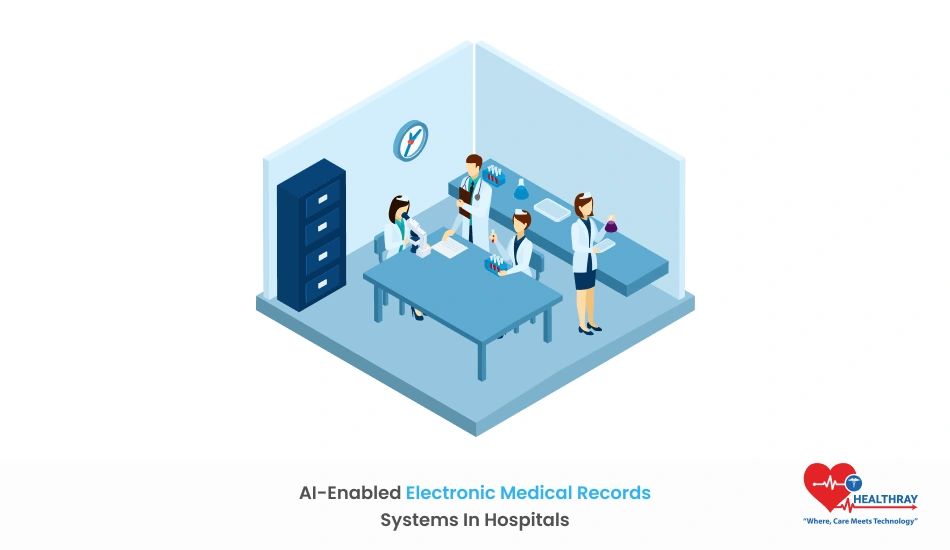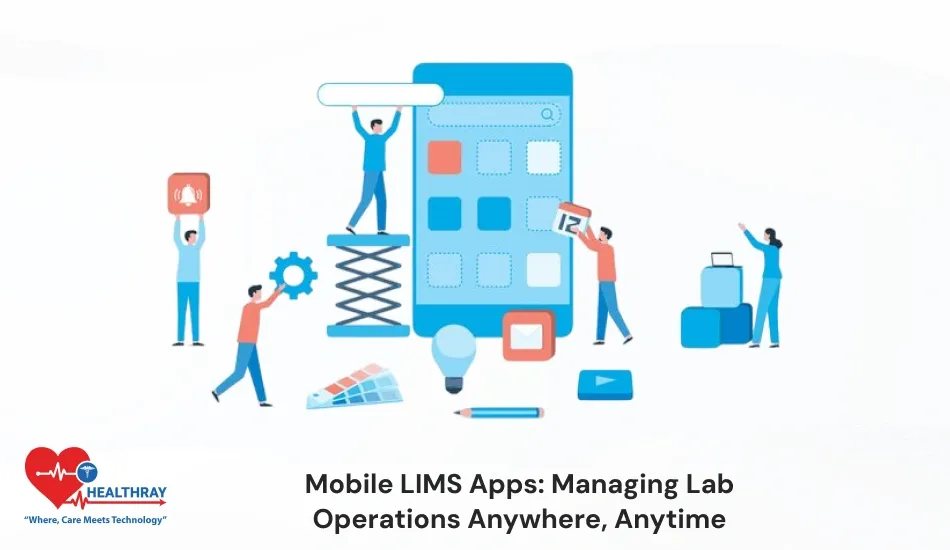Quick Summary
Promote with us National Digital Health Mission by embracing the modern AI-health technological software like Healthray. Moreover, it improves clinical processes and changes the structure of organization. Positive influence on providers, patients, clinical workers, and the whole economy. Therefore, the electronic medical records systems in hospitals improve overall systems.
Introduction
Digital clinical solution moulding the shape of medical culture from improving patient records to evaluate employee performance. Furthermore, the electronic health record (EHR) solution serves advanced healthcare facilities such as improving record systems, greater client care, and enhancing patient safety.
Convenient medical platform to use and free to add function without disturbing the basic software structure. Moreover, the EMR software solution provides the highest quality medical information through applying prevalent technology.
Therefore, the EHR system is best for efficient patient care, instruments for enhancing productivity, and superior for independent practices. Patients interact with the providers of healthcare divisions and can receive consultation service from diverse healthcare domains. Therefore, it enhances clinical efficiency.
Latest Attributes of Electronic Medical Records Systems In Hospitals
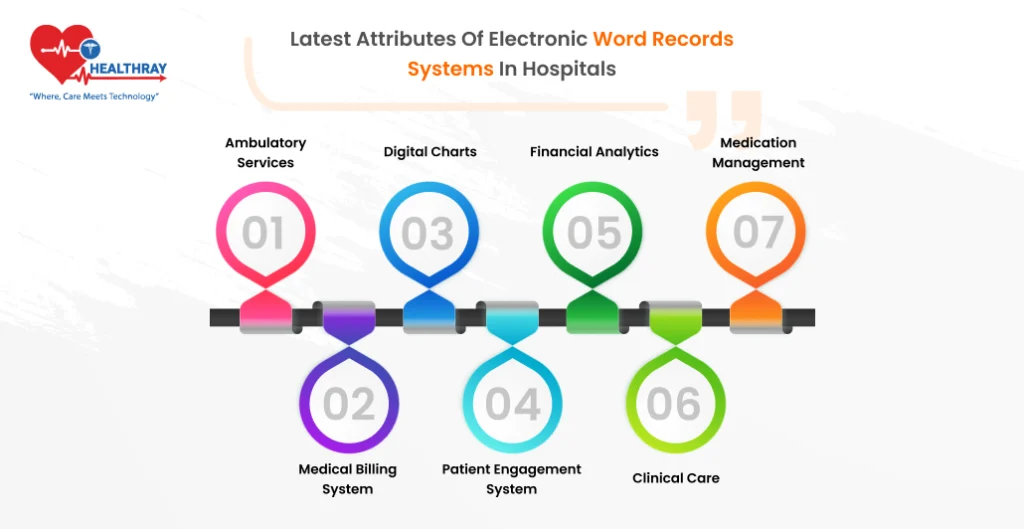
Advance your physician practices by acquiring electronic health records systems. Furthermore, it swiftly shares record accessibility, improves clinical test reports, and simplified treatment procedures. The electronic medical records systems in hospitals hold demographic information, avoid clinical troubles, and improve clinical outcomes. Are you thrilled to know the latest attributes of electronic medical records systems in hospitals? Then, watch it now.
Ambulatory services
This concept is emerging in modern days because of the client demand, economic environment, and physician needs. Moreover, the ambulatory care is received without taking a step at healthcare organization.
It demands less hospital space, reduces operational expenses, and improves physician revenue. Most importantly, it facilitates convenient medical service and has a simple user-interface. Additionally, it is more effective on urgent care.
Medical billing system
Healthcare invoicing forms do not require an experienced professional or advanced practice. Furthermore, the integrated bill items can be settled based on receiving patient service, the discounted medicine highlights on the dashboard, and has a keen role in tracking medicine.
Medical receipts are created by the online clinical platform. Moreover, it is easier to merge healthcare receipts and transfer to clients by on click. The billing error has been detected and corrected on time. Therefore, it is easier to manage clinical bills.
Digital charts
Physical documents shift to electronic versions that can ease to make, retain, detect mistakes and remove transcription errors. Moreover, it allows physicians to record their professional documents and necessary patient records. Look down to know the benefits of digital charts :
- Ease in client treatment
- Improve efficiency
- Simple to transfer documents
- Enhance patient care
- Alleviate to record.
Patient engagement system
Catch the attention of patients because of the knowledgeable resources, easy to record histories, and provide satisfactory attributes. Furthermore, the health information technology contributes to update information, analyzes test reports, and improves patient condition.
They provide record accessibility to diverse healthcare providers at a single time. Moreover, patients calculate their annual and monthly bills to know the accurate healthcare budget. Therefore, they manage finance efficiently.
Financial Analytics
Patients export their medical bills from patient portal to pdf format and can save in a local folder. Moreover, they make their budget accordingly and analyze their expenses. On the other hand, physicians compile healthcare and billing information to make financial actions.
It helps to examine financial information and dig out the conclusions from it. Moreover, the EHR system processed data to visual portrayal reports. Support to find out the gaps between financial income of the healthcare organization and easy to overcome through strategic planning.
Clinical care
Advancing EHR software systems standardize clinical procedures which improves appointment system, creates swift paying system, depicts early symptoms of disease, and upgrades prescription management.
It improves patient’s quality of life, fast diagnosis procedure, and contributes to drafting precise treatment plans. Therefore, it is a medium of improving the average age of an individual through making early precautions and medical actions.
Medication management
Electronic medical records systems in hospitals improve medication procedures of patients. Moreover, it rings at the time of taking prescriptions. Therefore, it swifts the procedure of their health recovery, reduces clients costs, and minimizes health risks.
On the other hand, it alarms at the situation of surplus stock and deficient stock. It helps to maintain balanced stock. Medications and other inventories are refills at the accurate time and assist to organize inventory items.
Role of AI in EMR Systems To Transform Industry
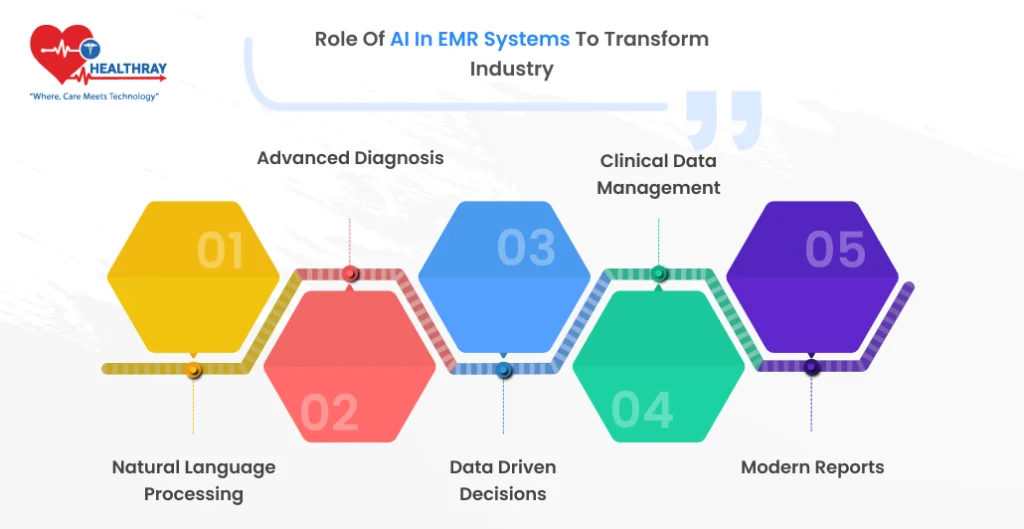
Artificial intelligence in healthcare industries provide ultimate results in client care, diagnosis, patient condition, and healthcare delivery. Furthermore, this advanced EHR system facilitates insightful patient’s healthcare information and medical industry. AI in EMR systems work more on improving existing healthcare solutions through advanced algorithms.
Natural language processing (NLP)
Getting insightful reports fast. How is it possible? It is feasible through applying NLP tactics. Furthermore, it transforms the medical information into comprehend structure.
It assists to create chat bots, which answer clients queries promptly. Additionally, it can provide written summaries from the medical reports. AI based EMR software improves healthcare insights with well-explained information.
Advanced diagnosis
AI in electronic health record systems upgrades the quality of data processing. Moreover, it applies many algorithms to rid of complex medical data. One algorithm is difficult to accomplish advanced diagnosis, it includes machine learning, data learning, and natural language processing. Gaining profits from modern diagnosis method are :
- Improve care delivery
- Enhancing accuracy
- Save more time
- Minimizes costs
- Swift decision making process.
Data driven decisions
Tried various methods to improve revenue. But, you won’t get any results. Moreover, the major reason behind not getting any fruitful reason, your healthcare organization does not make use of data in a more efficient manner.
The combined information that includes patient data, medical history, instrument information, and employee details. Once gathered, it is processed into visual results. Therefore, the information has been prepared to analyze and make decisions.
Clinical data management
Have you done exploring for an unified platform? Basically, you need a digital platform, where clinical details assemble at a single place and it is easy to bifurcate. Also, it is alleviated to fabricate medical reports and send to other individuals with a single tap. Profits from clinical data management are :
- Retrieve appointment information
- Clinical decision support
- Improve clinical outcomes
- Collected patient information
- Enhance practice.
Modern reports
Data collection has its own procedure, conducted with the accurate steps. Furthermore, the electronic medical records systems in hospitals make healthcare reports with the visual representation and record radiology images of high quality.
Present medical reports in the best layout. Consequently, it improves clinical efficiency, optimizes medical costs, and enhances customer care.
Potential Effects of Electronic Medical Records On Employee Performance
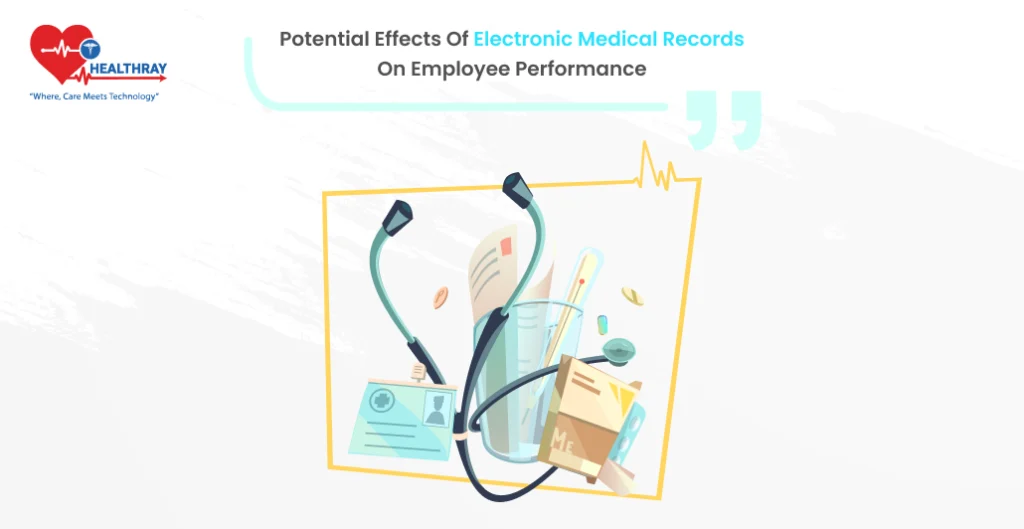
The cloud based EHR system records a volume of provider and clinical employee details such as experienced certificates, educational information, and salary slips of employees. Furthermore, it includes the performance report with senior information. The electronic medical records systems in hospitals reduce medical errors and monitor employee data accurately.
It transforms the path of working in the healthcare sector. Moreover, the change initiates from administrative employees to health care providers. It declines their work burden, retains energy, and improves the engagement of clinical employees. Therefore, the EHR system in healthcare lowers departmental issues and slows down the operational costs.
Conclusion
AI with electronic medical records systems in hospitals creates a drastic shift in terms of care, clinical environment and employee performance. Furthermore, the latest attributes of the advanced EHR system include ambulatory services, medical billing system, digital charts, patient engagement system, financial analytics, and medication management. Using AI through various algorithms. Therefore, it helps in advanced diagnosis, making effective data driven decisions, and modern reports.
